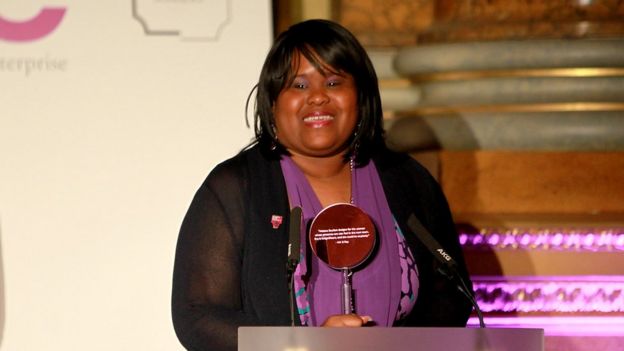Efforts to increase the number of black managers at British companies have stalled, according to a business group.
Just 1.5% of top bosses at UK companies are black.
That compares to 3% of the population of England and Wales.
While the ratio is an improvement on the 1.4% of 2014, there is much ground still to cover, said Sandra Kerr, race director at Business in the Community, which has campaigned for workplace racial equality for 25 years.
“It is clear that black people continue to be under-represented at a senior level,” she said.
“Black livelihoods matter and employers need to take urgent action to ensure that their organisation is inclusive and a place where people of any ethnic background can thrive and succeed.”
The new figures coincide with the 72nd anniversary of the arrival of HMT Empire Windrush, which brought workers from the Caribbean to the UK.

They also come amid global protests over racial inequality and as some older British companies come to terms with their historical links with the slave trade.
Pub chain Greene King and insurance market Lloyd’s of London apologised for those ties last week.
One of Greene King’s founders owned a number of plantations in the Caribbean.
Meanwhile, maritime insurance – which was focused on Lloyd’s – thrived on the trans-Atlantic slave trade.
Board member shortage
Lloyd’s has said it will donate to charities representing black, Asian and minority ethnic (BAME) groups.
Greene King said it would make a “substantial investment to benefit the BAME community”.
In March, a report from the Carnegie Trust, University College London’s Centre for Longitudinal Studies and Operation Black Vote said young BAME members are 47% more likely to to be on a zero-hours contract.
The researchers compared the experiences of 25-year-olds in England.
They looked at people who are white, as well mixed-race, Indian, Pakistani, Bangladeshi, Black African and Caribbean, and other minority ethnicities, sometimes collectively known as BAME workers.
That report followed research from February that about a third of FTSE 100 firms have no ethnic minority board members.
bbc